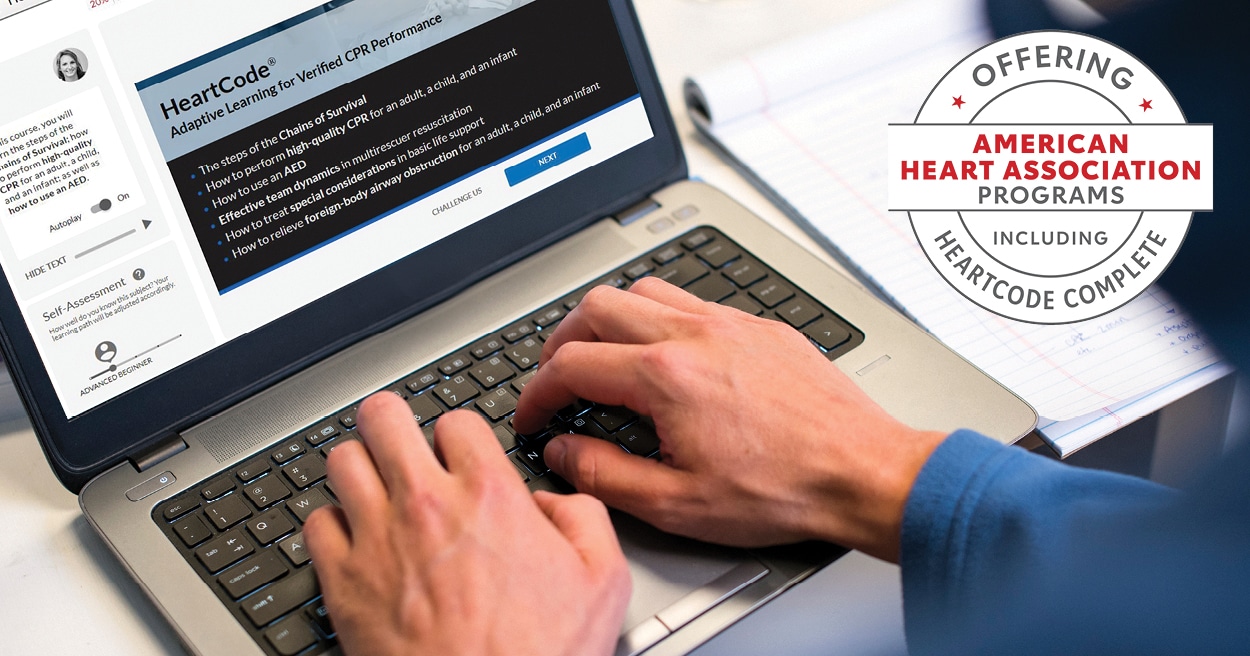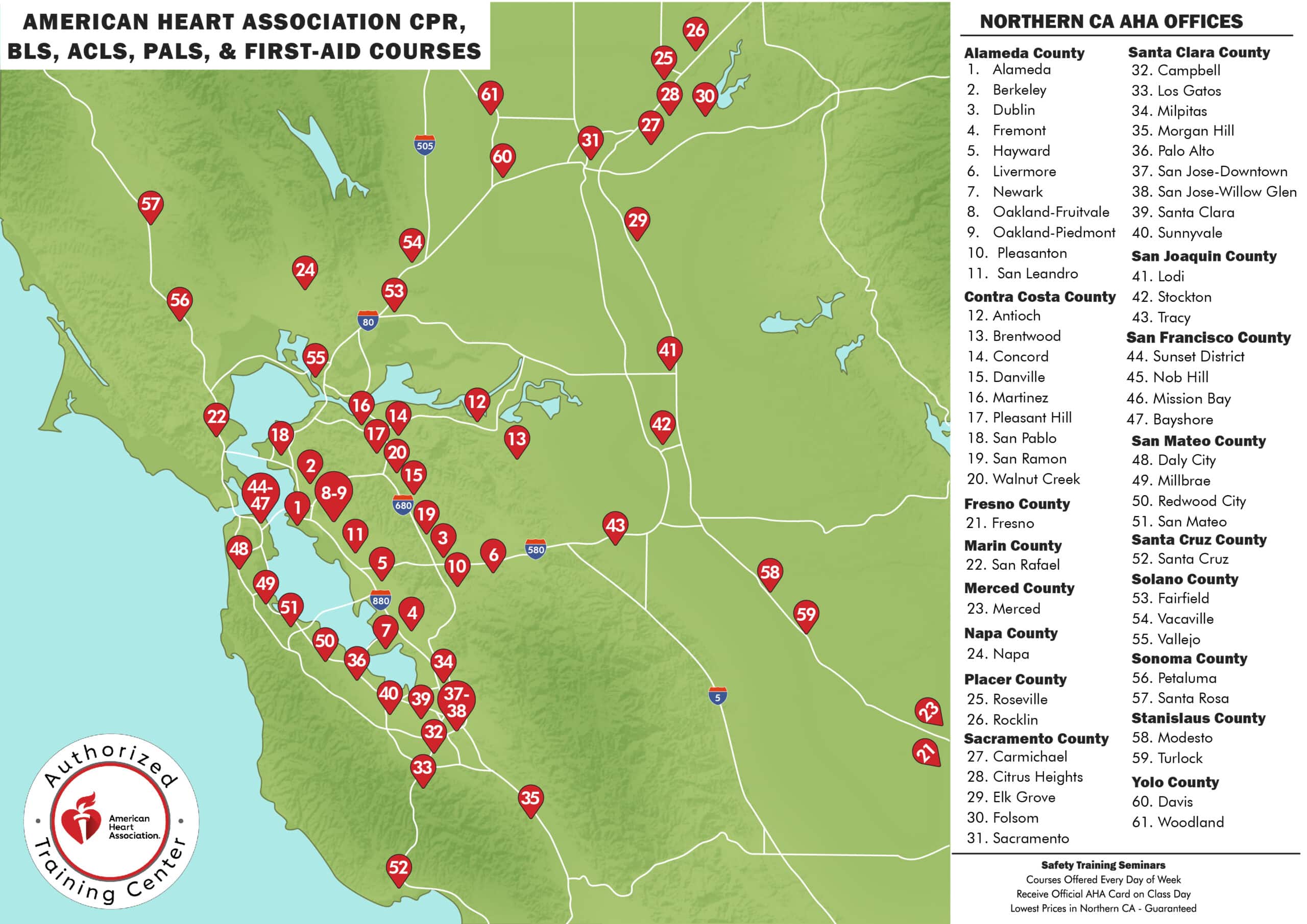American Heart Association© PALS Certification Classes in Manteca

American Heart Association© PALS
Course Name: PALS Pediatric Advanced Life Support (Initial or Renewal)
Online Course Length: 3-4 hours (At your home.)
Skills Testing: 30-40 minutes (At one of our over 60 testing sites.)
Price: $290 (This includes the online PALS course, skills testing, & PALS card.)
Certification: American Heart Association© PALS certification card.
When: PALS classes are offered Monday – Sunday from 7 am to 6 pm
Card Issuance: You will receive the PALS certification card on day of class.
Add ons available: ACLS, BLS, First-aid, Opioid, or Bloodborne Pathogens
Low Price Guranetee: Lowest Prices in Northern CA. Price matching policy.
View PALS Courses in Manteca & Other Cities Near You

PALS Certification Classes in Manteca: Empowering You to Respond to Pediatric Emergencies
In Manteca, California, the American Heart Association (AHA) offers Pediatric Advanced Life Support (PALS) classes designed to equip healthcare providers with the skills and knowledge necessary to effectively manage pediatric emergencies. PALS certification is essential for healthcare professionals who care for infants and children in emergency and critical care settings. This article explores the importance of PALS classes in Manteca, the key components of the course, and the impact they have on healthcare providers and the community.
Importance of PALS Classes
Pediatric emergencies require specialized care due to the unique physiology and anatomy of children. PALS classes in Manteca are designed to teach healthcare providers how to assess and manage critically ill or injured infants and children. The course covers a wide range of topics, including pediatric assessment, basic life support, advanced life support, and resuscitation algorithms specific to pediatric patients. PALS certification ensures that healthcare providers are prepared to respond quickly and effectively to pediatric emergencies, improving patient outcomes and reducing mortality rates.
Key Components of PALS Classes
PALS classes in Manteca focus on teaching healthcare providers the skills necessary to recognize and intervene in pediatric emergencies. Participants learn how to assess a pediatric patient’s condition, manage their airway, and administer appropriate medications. The course also covers effective communication and teamwork skills, as managing pediatric emergencies often requires coordination among healthcare providers. PALS classes incorporate hands-on practice and simulation scenarios to ensure that participants are prepared to apply their knowledge in real-life situations.
Impact on Healthcare Providers
PALS certification enhances the skills and confidence of healthcare providers, enabling them to provide high-quality care to pediatric patients. PALS classes in Manteca are taught by experienced instructors who use a combination of lectures, demonstrations, and hands-on practice to ensure that participants understand and can apply the concepts taught in the course. By completing PALS training, healthcare providers demonstrate their commitment to providing the best possible care to pediatric patients, which can lead to career advancement opportunities and increased job satisfaction.
Impact on the Community
The impact of PALS classes in Manteca extends beyond individual healthcare providers to benefit the community as a whole. By ensuring that healthcare providers are trained in the latest evidence-based practices for managing pediatric emergencies, PALS certification contributes to improved outcomes for pediatric patients. Additionally, PALS-trained professionals play a crucial role in educating parents and caregivers about pediatric health and safety, helping to prevent injuries and illnesses in children.
Conclusion
In Manteca, American Heart Association PALS classes are essential for healthcare providers who care for pediatric patients. By providing comprehensive training in pediatric emergency care, PALS certification enhances the skills and confidence of healthcare providers, leading to improved outcomes for pediatric patients. With a focus on accessibility and excellence, PALS classes in Manteca play a vital role in ensuring that healthcare providers are well-equipped to respond effectively to pediatric emergencies and save lives.
FAQs
Who should attend PALS certification classes in Manteca?
PALS certification classes are primarily designed for healthcare professionals who are involved in the management of pediatric patients, including pediatricians, emergency physicians, nurses, paramedics, and respiratory therapists.
How long does a PALS certification course typically last?
PALS certification courses usually span over two days, with a combination of didactic instruction, skills practice, and simulated scenarios to ensure comprehensive learning and skill mastery.
Is there a renewal requirement for PALS certification?
Yes, PALS certification is typically valid for two years, after which healthcare professionals are required to undergo PALS renewal courses to maintain their certification.
